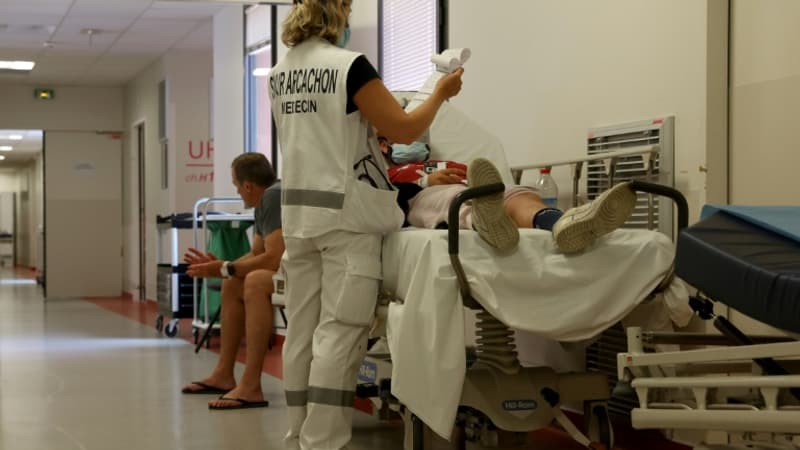Despite great advances in cardiology, between 4 and 5 million sudden deaths still occur each year worldwide, but many deaths could be prevented, several global experts said on Sunday. Lancet.
This form of death is primarily a consequence of heart disease, sometimes unrecognized, which causes the heart to race and the victim to collapse in cardiac arrest.
Although the number of these deaths has remained stable for years, the chances of survival could improve considerably, say some thirty experts in a special issue of the medical journal.
Sudden death “occurs unexpectedly, one hour after the appearance of the first symptoms,” explained Eloi Marijon, professor of cardiology at the Paris-Cité University and researcher at Inserm, who coordinated this group of specialists.
“The typical thing is the person who gets up well in the morning and suddenly collapses on the subway on the way to work,” he illustrated.
Myocardial infarction (or heart attack) accounts for the cause of sudden death in approximately three-quarters of cases, but hereditary heart disease, sometimes an “electrical” defect of the heart, is frequently identified in younger victims.
40,000 cases in France
According to the Lancet article, which is meant to guide the medical and scientific communities as well as public health stakeholders, our ability to predict an event should be improved by using as much data as possible that has hitherto been neglected. In total, in France there are approximately 40,000 sudden deaths per year. The survival rate after cardiac arrest is approximately 10%.
“Most people who die are not autopsied. However, if we want to predict better, we need to better understand the mechanisms and therefore be able to analyze more data,” explained Eloi Marijon.
Conversely, les facteurs clés qui permettent une meilleure survie -une fois l’arrêt cardiacaque survenu- sont simple et bien connus: le massage cardiaca immédiat par le témoin et l’usage d’un défibrillateur grand public avant l’arrivée des rescue.
“Educate the population” in the gestures that save
“Recent studies show that with massages and defibrillation in the minutes following the event we can achieve more than 80% survival,” insisted Eloi Marijon, recalling that “we lose 10% chances of survival with every minute that passes.”
“We must educate the population, install defibrillators in all public places,” he advocated.
The goal is to progressively resuscitate “between 20 and 30%” of people and thus reduce the total number of sudden deaths.
Among other recommendations: take more into account a series of neuropsychological sequelae that persist after cardiac arrest and identify possible hereditary heart diseases.
Source: BFM TV


